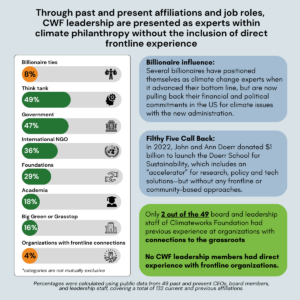Editor’s Note: This is the second in a two-part series. Read the first piece by Dave Beckwith.
Dave Beckwith’s call to action and his kind words about our work together in Louisiana remind me that this is really our moment; our moment as funders to answer the call to make a real difference, to practice strategic philanthropy and not just feel-good charity. Now, after the tragedy in South Carolina, and in light of the growing movement for Black lives, is an opportune time to take action, of course. This begs the question, though – where have we been? What we do now is important, but we should ask ourselves, what are we doing anyway? Why aren’t questions about race, equality, democracy and inclusion at the center of our work in philanthropy?
The Winthrop Rockefeller Foundation (WRF) is committed to this approach of strategic philanthropy, and we have to constantly challenge ourselves. We invest in groups that address outcomes – moving the needle in grade level reading, jobs and opportunity. We also work to build and support a genuine voice for underserved and underrepresented communities in Arkansas. We’ve tried to apply the lessons learned in Louisiana after Hurricane Katrina, the hard-won wisdom born of that ugly time. Philanthropy has a long view, but we need to respond quickly to critical issues as well. We said at the time that the key to crisis response can be expressed in the old safety slogan, “Stop, look and listen!” Kris Putnam-Walkerly describes this well in Confident Giving.
This moment of national reaction, of horror, grief and determination to do better, has of course touched us in Arkansas. We’ve seen that we can do better, and we’re committed to taking action. In Little Rock, the City Year program supports young people, Black, white, Latino and Asian, mostly from middle class families, who commit to serving for a year in distressed communities. These young volunteers have been hit hard by the killings in South Carolina. WRF agreed to their request to support a consultant that could help the volunteers understand the moment, the history, the possibilities and challenges, and the feelings they are experiencing. We were disappointed to discover that, in spite of our commitment to building the field of social justice here, we couldn’t find a qualified consultant who was local. We had to reach outside our state. We can do better in the future.
In our community-building work in rural communities, people of color feel isolated and excluded, rarely engaged and unprepared to use their voice in determining their future. We’ve struggled to slow things down, to invest in strengthening that voice, to ensure that the people are ready for the process. Our grantmaking has to take that long term challenge seriously. No amount of attention to the symbols of slavery can cure the legacy of slavery and oppression by magic or majority vote. That cure, the redemption of democracy’s promise for all, is long, hard work.
I hear the passion and immediacy in Dave’s call to action, and I support it. At the same time, I ask that we as funders confront the deeper question. Is our philanthropy addressing the real common good? Could we use the power of the national attention to ask ourselves institutionally if we can change for the better? That is our challenge, our opportunity. Now is the time.
Dr. Sherece West is executive director of the Winthrop Rockefeller Foundation. She is currently chair of the board at the National Committee for Responsive Philanthropy (NCRP). Follow @ShereceWest and @WRF_Arkansas on Twitter.
































































































































































































































































































































































































































